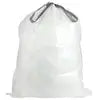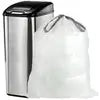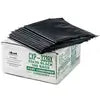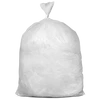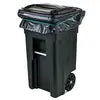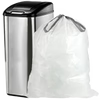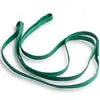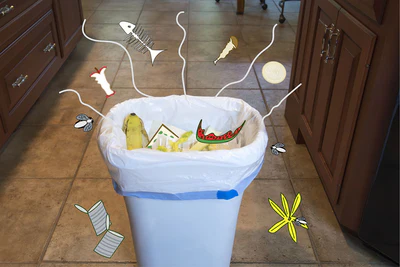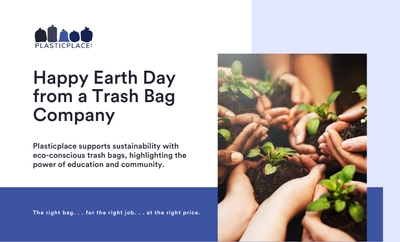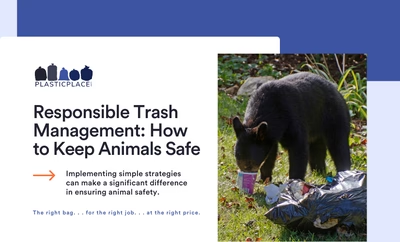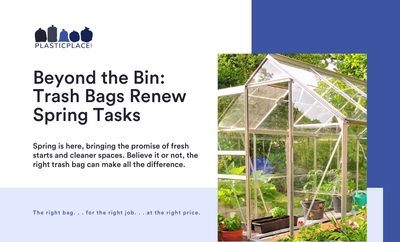Source: Shintartanya/Shutterstock.com
You were the kind of kid who went rummaging through the house looking for your birthday presents, right?And since you’ve started composting, you’re restless for your yard clippings and eggshells to ripen into rich, black gold. You’re raring to get to work on your garden beds. You can almost hear the compost bin calling your name whenever you take the recycling bags out to the curb.
Slow down, gung-ho gardener. Before you dig into that shiny new pile of black gold, read this article first. Because instead of ruining your birthday, your impatience could ruin your garden.
Lucky for your garden plants, you can turn to Plasticplace.com for your composting questions and compostable bags.
How Does Composting Turn Food Scraps to Dirt?
First off, compost does not become dirt. Yes, we know that it looks like dirt. But while dirt contains rocks and other inorganic compounds, compost is made entirely of compounds that were once alive.
The organic particles in compost are either the ingredients you added or the byproducts created as those ingredients decomposed or were eaten by organisms. Eventually, the compost is made up entirely of those organic byproducts. When that happens, the compost is referred to as “humus.”
No, compost doesn’t transform into a delicious food dip. It’s humus, not hummus. Please, don’t eat your humus. You are excited, aren’t you?
It actually takes years for compost to completely become humus. Luckily, you don’t have to wait that long before you’re able to use compost in your garden. The trick is knowing when the compost has broken down enough to be beneficial to plants. Using compost too early will damage the plants in your garden.
What Happens If You Use Compost Too Early?
Mixing immature compost with your soil may stunt your plants’ growth or cause their leaves to turn yellow. That’s because your plants need nitrogen to grow.
Immature compost uses nitrogen as the material decomposes. Hence, adding compost to your garden before it’s ready will cause a nitrogen deficiency for your plants. The good news is that the nitrogen will be released into the finished humus once the compost is sufficiently mature.

Source: Electric Egg/Shutterstock.com
How Do You Know If Compost Is Ready for Use?
Knowing if your compost is ready for your garden can be tricky if you’re new to composting. Your compost has broken down enough when it has the following characteristics.
- There are no recognizable pieces of raw materials.
- The material is crumbly and smells fresh.
- The material is at an ambient temperature and doesn’t feel warmer after it's been turned.
Can You Speed Up Your Compost Pile?
There’s no answer for how long it takes compost to break down and be ready for use simply because it depends on diverse factors. However, you can do a few things to speed up your compost.
- Add smaller pieces of material. Try cutting up your food waste into smaller pieces before adding it to the compost.
- Add more green material than brown. The green material is your food waste and the grass clippings you raked into a 30-gallon compostable trash bag. Brown material is your dead leaves or paper. Generally, you should add equal parts of each. But adding more green material to a slow compost pile can help speed it up. This is because green material adds nitrogen, which the microbes require to break down compost.
- Turn your material more often. The key to a faster compost pile is keeping the microbes and worms that support decomposition active. You can do this by turning your pile more often.
- Add worms to cool, unfinished compost. The heat in compost is generated by the microbes doing the composting. If your compost isn’t heating despite your best efforts, try adding worms to finish the composting for you. Keep in mind, worms cannot live in hot compost.

Source: Jerome.Romme/Shutterstock.com
Shop For Eco-Friendly Trash Bags 4.9 out of 5
4.9 out of 5  Mix & Match: Buy any two products for 10% off!
Mix & Match: Buy any two products for 10% off!












